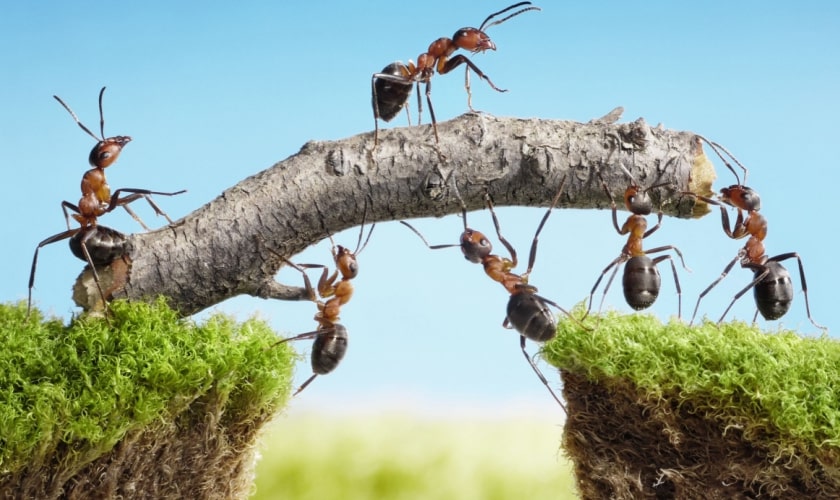Comprehensive Termite Control: Protect Your Residential Or Commercial Property with Professional Services
Comprehensive Termite Control: Protect Your Residential Or Commercial Property with Professional Services
Blog Article
Environmental Influence of Bug Control: Balancing Performance With Sustainability
The ecological effect of parasite control is an important problem that needs a delicate equilibrium between attaining performance in making certain and managing parasites sustainability of our communities. From the use of unsafe chemicals that seep right into our dirt and water to the unexpected consequences on non-target types, the effects of conventional pest control techniques are significant.
Dangerous Chemicals in Insect Control
The use of damaging chemicals in pest control poses considerable ecological and health and wellness threats that necessitate mindful factor to consider and mitigation techniques. Pesticides, chemicals, and herbicides are typically utilized to eradicate insects, yet their extensive application can cause unexpected effects. These chemicals can contaminate dirt, water sources, and the air, impacting not only the targeted pests however likewise valuable insects, wildlife, and humans.

To attend to these risks, integrated parasite monitoring (IPM) methods are being advertised as a much more sustainable option. IPM includes a combination of methods such as biological control, habitat control, and the targeted use of chemicals as a last hotel (ant control harrisburg nc). By embracing a holistic approach to pest control, we can minimize the ecological and wellness influences related to hazardous chemicals while efficiently handling pest populations
Effect On Non-Target Species
Taking into consideration the unintended repercussions of parasite control methods, the effect on non-target types is a critical facet that needs comprehensive examination. While insect control measures aim to target specific insects, other microorganisms in the environment might be unintentionally influenced. Non-target types, consisting of helpful bugs, birds, creatures, and also plants, can endure indirect or straight injury from pesticide applications or biological control approaches.
Pesticides developed to fight a particular bug parasite may harm pollinators like bees or natural predators such as ladybugs. Biological control agents, if not species-specific, can present risks to unintentional targets, interfering with the ecological equilibrium.
To alleviate the influence on non-target varieties, integrated insect monitoring (IPM) approaches that highlight an alternative strategy to pest control are advised. These approaches focus on the usage of eco-friendly practices, lessening damage to beneficial microorganisms while properly handling pest populations. Performing complete risk evaluations and checking the results of insect control initiatives are vital action in safeguarding non-target types and advertising general community wellness.
Soil and Water Contamination
Unplanned ecological consequences of parasite control methods prolong past influencing non-target types, with considerable ramifications for dirt and water contamination - termite control. Chemicals, herbicides, and chemical fertilizers used in insect control can leach right into the soil and infect groundwater, posturing a hazard to both water and earthbound communities.
Water contamination is one more crucial issue connected with pest control techniques. To reduce soil and water contamination from insect control activities, integrated pest administration approaches that focus on sustainability and minimize chemical inputs are important.
Air Contamination From Pesticide Use
Direct exposure to air-borne pesticides during agricultural applications poses a significant concern for air pollution control actions. Additionally, pesticide drift, where pesticides are lugged by the wind to unintended areas, can lead to the contamination of close-by communities and water bodies.

Methods for Sustainable Insect Control
In the world of farming practices, carrying out sustainable bug control strategies is paramount for keeping environmental equilibrium and guarding plant returns. Sustainable insect control stresses using ecologically friendly methods to manage bug populations properly while minimizing injury to non-target organisms and communities. Integrated Parasite Administration (IPM) is an extensively adopted approach that integrates biological, cultural, physical, and chemical control approaches to achieve long-term insect monitoring remedies.
One key method in sustainable pest control is advertising biodiversity within agroecosystems. By boosting natural adversaries of pests, such as predators and parasitoids, farmers can reduce the need for artificial pesticides. Plant rotation and diversity are additionally effective methods to disrupt pest life cycles and create less beneficial conditions for pests to prosper. Furthermore, making use of pest-resistant crop selections and using techniques like trap cropping can help in reducing parasite stress without depending greatly on chemical interventions. Eventually, by integrating these lasting pest control techniques, farmers can achieve a balance between pest monitoring performance and ecological stewardship.
Conclusion
Finally, the environmental influence of pest control methods must be very carefully thought about to stabilize efficiency with sustainability. Unsafe chemicals used in parasite control can cause soil and water contamination, air contamination, and harm non-target you could look here varieties - termite control. It is important to execute lasting bug control approaches to reduce these negative results on the environment and advertise a healthier ecological community for future generations
By embracing a holistic technique to pest control, we can lessen the environmental and health influences connected with damaging chemicals while successfully handling pest populations.

To reduce the air contamination caused by pesticide usage, it is crucial to embrace integrated parasite monitoring techniques that prioritize the use of non-chemical parasite control approaches, such as plant rotation, all-natural predators, and resistant plant varieties. Lasting insect control highlights the usage of environmentally pleasant approaches to manage parasite populaces efficiently while lessening harm to non-target organisms and ecological communities. Integrated Bug Management (IPM) is a widely adopted technique that combines organic, social, physical, and chemical control methods to achieve lasting parasite administration solutions.
Report this page